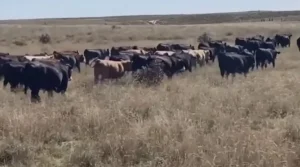
Improperly managed winter manure spreading increases runoff that damages aquatic life in local waterways and sends increased levels of nitrogen and phosphorus downstream to the Chesapeake Bay. Diana Oviedo-Vargas, principal investigator of the Watershed Biogeochemistry Group at the Stroud Water Research Center, said other harmful side effects include the addition of antibiotics, bacteria and pathogens to waterways.
Jedd Moncavage, environmental consulting services manager at TeamAg Inc., noted the “millions of dollars coming into the Chesapeake Bay region” to address water quality concerns. He said, “Right now is one of the best opportunities that farms in the region may ever have to get assistance with the installation of these types of best management practices.”
But connecting farmers with funding sources isn’t just an awareness exercise — it takes time because it’s also about building trust.
Gordon Hoover operates a crop farm in Salisbury Township. He spent 30 years working on a dairy farm, and he’s now doing conservation outreach work for the Lancaster Farmland Trust and serving as a supervisor in the township.
Hoover used grant money from the Alliance for the Chesapeake Bay to install a stream buffer on his land in spring 2022 as part of the White Horse Run stream restoration project. He said even Plain sect farmers, many of whom would rather not use government grants, are realizing they have a need, and he encouraged outreach workers to spend time getting to know producers.
“Just because you show up with a fistful of dollars on their farm doesn’t mean they’re going to work with you, because they might not know you, might not trust you,” Hoover said. “They want to have a relationship with whoever they’re going to work with on their farm.”
Winter manure spreading is legal in Pennsylvania, but regulations require a reduced rate of application and spreading must be done on the flattest fields farthest away from surface water to minimize the risk of runoff. As fertilizer costs rise, farmers are also increasingly conscious of the need to use manure strategically to maximize delivery of nutrients.
Matt Ehrhart, director of watershed restoration at the Stroud Water Research Center, said it can be difficult to measure the damage done through winter manure spreading because proper management can minimize the impact on the watershed.
“If you’ve got manure applied in the winter, and the ground’s frozen, and you’re having rain or snowmelt and it’s, you know, just like all of it is basically washing off the landscape — the solids, the phosphorus, the nitrogen — it really has an impact, and it can create fish kills and stuff like that,” Ehrhart said. “If it’s winter applied in absolutely the right conditions — really well-managed pasture or hay ground and not on slopes — its impact is really modified quite a bit.”
Farmers who still practice winter manure spreading mainly do so because of a lack of storage. TeamAg is just one of many organizations connecting farmers with funding for new storage facilities and other conservation upgrades such as stream buffers.
When Jeb Musser started at the Lancaster Farmland Trust 10 years ago, he said the trust had only two water quality grants totaling $500,000. Now he’s the vice president of land protection, and the trust is managing 20 water quality grants totaling $5 million. Musser estimated that Lancaster County as a whole has more than $10 million available in water quality grants.
The Lancaster County Conservation District and the Farmland Trust are not the only options for farmers seeking grant money. Nonprofits such as the Alliance for the Chesapeake Bay and the Stroud Water Research Center also help.
Grant money being stretched
Water quality grant money is being stretched by market forces. Kevin Seibert, the agriculture compliance coordinator for the Lancaster County Conservation District, noted that labor costs have risen, as have the cost of materials like concrete and PVC pipe.
“We’re seeing projects that are way over the historic costs,” Seibert said.
Both Seibert and Musser said Pennsylvania’s requirement to pay the prevailing wage for public projects drives up the cost of projects that employ certain grants. Musser said paying the prevailing wage can increase a project’s total cost by 30%.
Musser also said he’s seen the cost of large projects nearly double. He estimated that an Amish dairy farm that wanted to implement a full conservation plan could now face $500,000 in project costs.
Not all farms seek to implement a full renovation. Moncavage estimated that the average Lancaster County farm operating with 30 to 70 cows would need $75,000 to $100,000 to install an adequately sized manure storage tank.
Agriculture industry experts and environmentalists agreed that it can take two to three years for a grant-funded project to reach completion. They also agreed that a lack of qualified engineers and contractors has limited Lancaster County’s capacity to scale up the number of water quality projects being implemented.
Musser said the trust regularly sees the same three to five contractors show up to bid on projects.
Streamlining the grant process and shortening the time to bring projects to completion could be the key to motivating more farmers to participate.
“Oftentimes, it’ll take multiple years from the time you start the application and then get through the permitting and all that,” Hoover said, “and sometimes farmers just don’t have that kind of patience, and they want to try to do it themselves.”

























